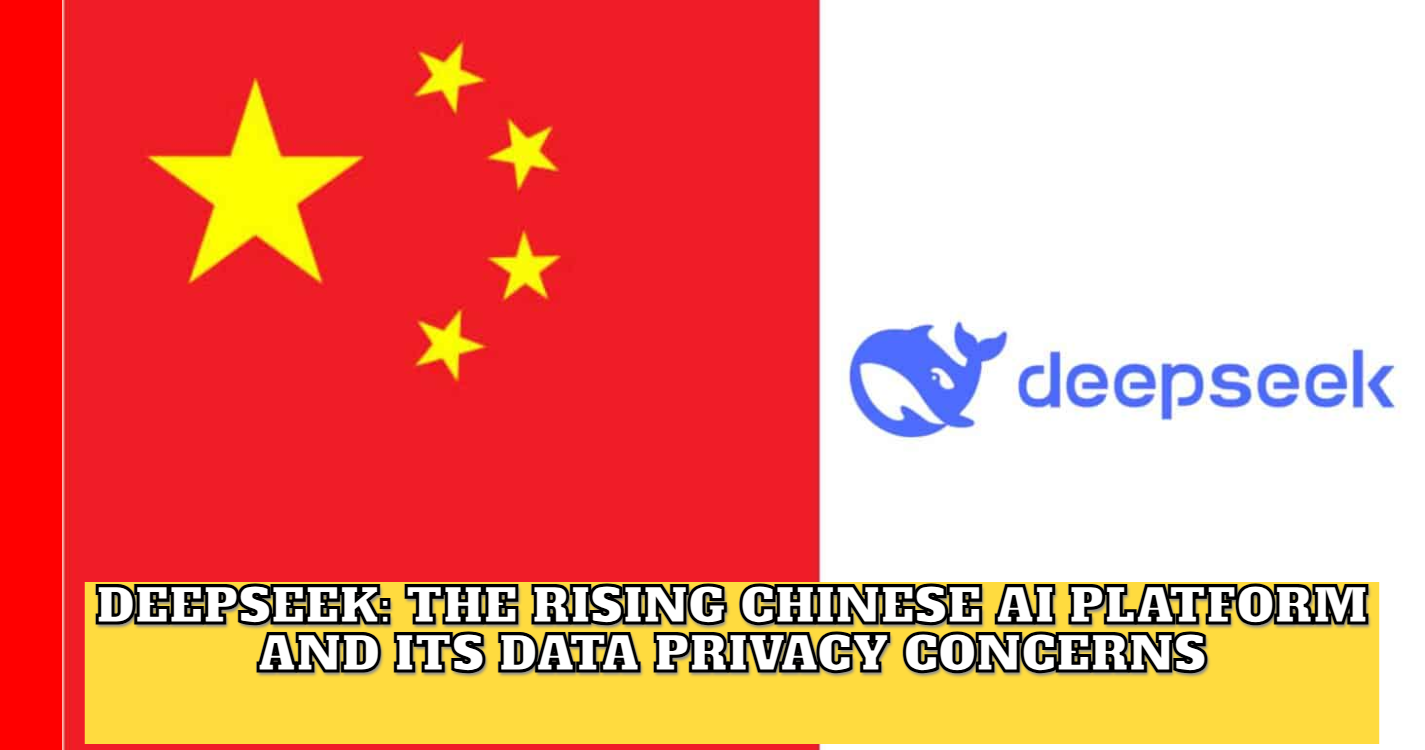The rapid rise of DeepSeek, a Chinese artificial intelligence (AI) platform, has caused a stir in the tech world. Competing with leading US-based AI firms such as OpenAI, DeepSeek’s generative AI models are drawing attention due to their capabilities and the growing user base. However, with its swift expansion comes increasing scrutiny, especially concerning its data collection methods, privacy implications, and potential geopolitical issues.
What is DeepSeek?
DeepSeek is a platform developed by a Chinese tech company, sponsored by a hedge fund, that offers users an AI-driven chat interface. It is available across multiple platforms including iOS, Android, and web browsers. Much like other AI systems, DeepSeek allows users to communicate with AI, ask questions, perform searches, and even access personalized responses. However, it is the way the platform handles data that is becoming a point of contention.
Key Features of DeepSeek
| Feature | Details |
| Platform Availability | iOS, Android, Web |
| Functionality | AI-powered chat interface for questions, searches, and personal assistance |
| Data Collection | Conversations, search history, device info, IP address, email, and phone numbers |
| Data Storage Location | Servers in China |
| Privacy Settings | Allows deletion of chat history, but data is still stored and managed by DeepSeek’s servers |
DeepSeek’s Data Gathering Techniques
What Data Does DeepSeek Collect?
- User Conversations: The AI model collects the interactions users have with the platform.
- Search History: The app tracks the searches made by users for service improvement.
- Device Information: Data about the device used, such as type, operating system, and IP address.
- Personal Data: Details like email addresses and phone numbers entered during account setup.
- Keystroke Patterns: In some cases, the app may collect keystroke data, which can be used to analyze user behavior.
The Concerns Over Data Transmission
A significant concern regarding DeepSeek is the fact that all this data is transmitted back to servers in China, where it is stored and handled according to the company’s privacy policies. While the platform offers users the ability to delete their chat history, much of the data, including device information and search history, is automatically collected without direct user consent. Furthermore, once collected, this data is under the jurisdiction of Chinese cybersecurity laws, which are widely seen as invasive.
The Risk to Privacy and Security
- Government Oversight: Chinese cybersecurity laws require companies to comply with government requests for data, raising fears that user data could be accessed by Chinese authorities for surveillance purposes.
- Lack of Transparency: The platform’s handling of personal data might not be fully transparent to its global user base, with little clarity on how or where the data might be used.
- Data Harvesting: Unlike many other AI platforms, DeepSeek collects far more personal data, including sensitive details, than users might expect. This has sparked concerns about mass data harvesting for commercial and political purposes.
Censorship and Geopolitical Implications
Content Filtering and Propaganda
- Tiananmen Square Massacre: The AI has been found to evade questions or provide sanitized versions of sensitive historical events like the 1989 Tiananmen Square protests.
- Chinese Propaganda: Some answers provided by DeepSeek seem to align with Chinese government views, raising suspicions of information manipulation.
These censorship practices contribute to the suspicion that DeepSeek may not just be an AI platform but also a tool for shaping narratives and promoting Chinese governmental interests.
Global Response and the US-China Tech Conflict
The United States’ Reaction
The rapid rise of DeepSeek is reigniting the US-China tech rivalry, similar to concerns raised during the debates surrounding the popular Chinese app TikTok. While TikTok has been under scrutiny for its data collection practices, DeepSeek’s use of AI and its data transmission to Chinese servers have brought new questions about how Chinese tech firms manage global data.
The United States and other nations may begin to explore stricter regulations on platforms like DeepSeek due to:
- Data Sovereignty: Countries might demand that data from their citizens stay within their borders or be handled by local entities.
- National Security: The fear that Chinese platforms could be used to collect data for espionage purposes continues to grow.
Should Users Be Concerned?
Experts suggest that users should be cautious about using DeepSeek for any activity involving sensitive personal information. While the app may be convenient and powerful, its reliance on cloud-based servers located in China means that user data is vulnerable to unwanted surveillance and potential misuse.
Is DeepSeek the Future of AI or a Risk to Privacy?
While DeepSeek’s AI model is undeniably powerful and comparable to top-tier systems from companies like OpenAI, its data collection and privacy issues make it a double-edged sword. As the platform grows in popularity, it faces mounting pressure from governments and privacy advocates to ensure that user data is protected and that the app does not become a tool for mass surveillance or political manipulation.
The rise of DeepSeek marks an exciting new chapter in the world of artificial intelligence, but it also highlights critical issues surrounding data privacy and geopolitical concerns. As the app continues to gain traction, it will likely face increased scrutiny from privacy advocates and governments. Users must weigh the benefits of advanced AI capabilities against the potential risks posed by the platform’s data collection practices and its links to Chinese servers.








